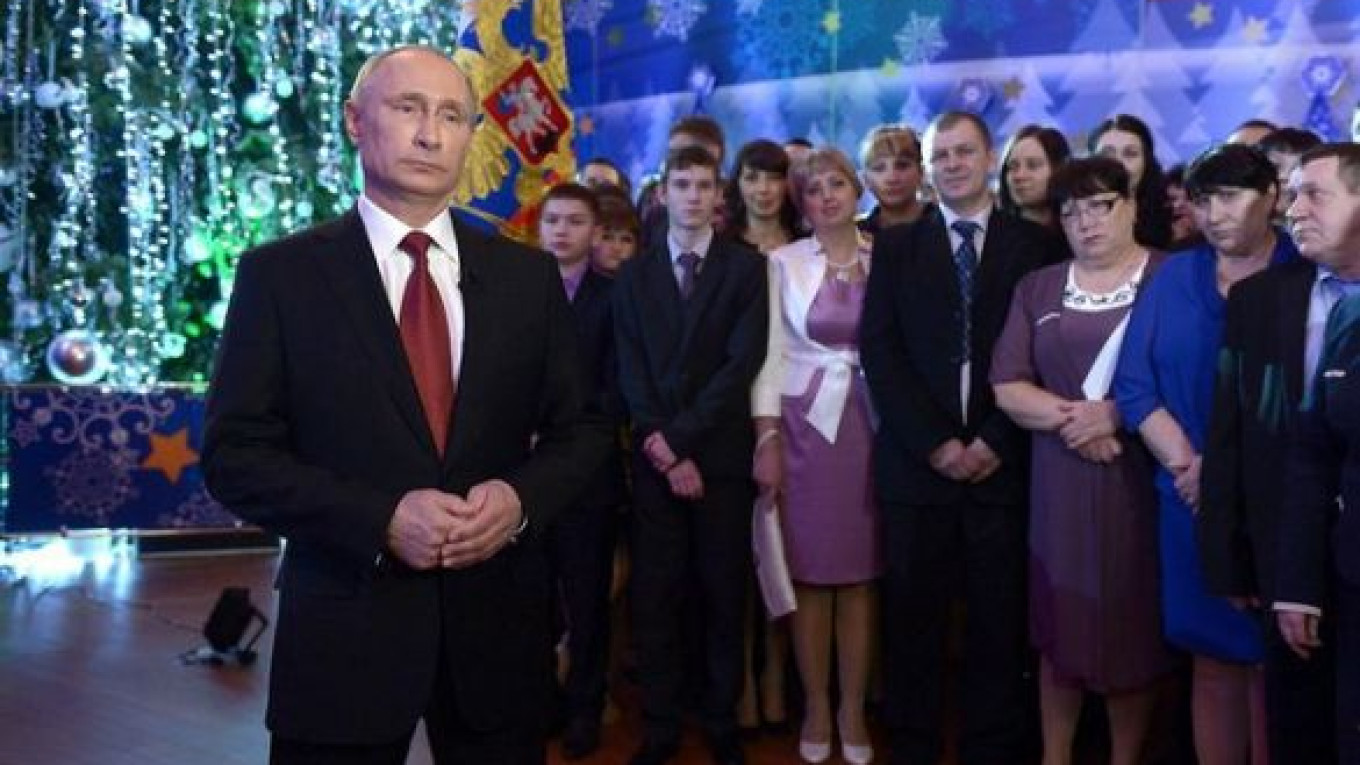President Vladimir Putin broke with tradition this Dec. 31 and delivered two New Year's speeches instead of one.
In a pre-recorded New Year's address shown on television minutes before midnight, Putin outlined the priorities for the coming year.
"Next year, a lot needs to be done in the economy, to improve the lives of people and to hold, on the best possible scale, the Olympic Games, which are to begin in just over a month," he said.
On Tuesday afternoon, Putin paid a surprise visit to Khabarovsk, a city in the Far East that was hit by devastating floods in late August and early September.
"The president decided to be with those who endured this unprecedented natural disaster. There [in Khabarovsk] he made another speech, and it was a New Year's address as well. So, in fact, he broke with a long-time tradition," Putin's spokesman, Dmitry Peskov, told reporters.
In his second speech, Putin outlined the "problems and serious challenges" that Russians had to face in 2013, including the floods in the Far East and the recent bombings in Volgograd.
He said he would like to make a toast "for the people as well as for the health of those impacted by the flooding."
Putin attended a New Year's reception for rescue workers and people who lost their houses in the floods, an event hosted by his envoy to the Far East region, Yury Trutnev.
Ahead of the celebration, Putin visited a temporary shelter for Khabarovsk residents rendered homeless by the disaster.
On his way to Khabarovsk, the president's plane made a stop in the Siberian city of Chita to take on board the widow of the only person known to have died in the floods.
That person, Bair Banzaraktsaev, was a military man who took part in the rescue effort. He was driving a truck along a partially inundated highway linking Khabarovsk and another far-eastern city, Komsomolsk-on-Amur, when damp soil gave way under the heavy vehicle. He drowned while trying to prevent his truck from sliding into the water.?
A Message from The Moscow Times:
Dear readers,
We are facing unprecedented challenges. Russia's Prosecutor General's Office has designated The Moscow Times as an "undesirable" organization, criminalizing our work and putting our staff at risk of prosecution. This follows our earlier unjust labeling as a "foreign agent."
These actions are direct attempts to silence independent journalism in Russia. The authorities claim our work "discredits the decisions of the Russian leadership." We see things differently: we strive to provide accurate, unbiased reporting on Russia.
We, the journalists of The Moscow Times, refuse to be silenced. But to continue our work, we need your help.
Your support, no matter how small, makes a world of difference. If you can, please support us monthly starting from just $2. It's quick to set up, and every contribution makes a significant impact.
By supporting The Moscow Times, you're defending open, independent journalism in the face of repression. Thank you for standing with us.
Remind me later.


